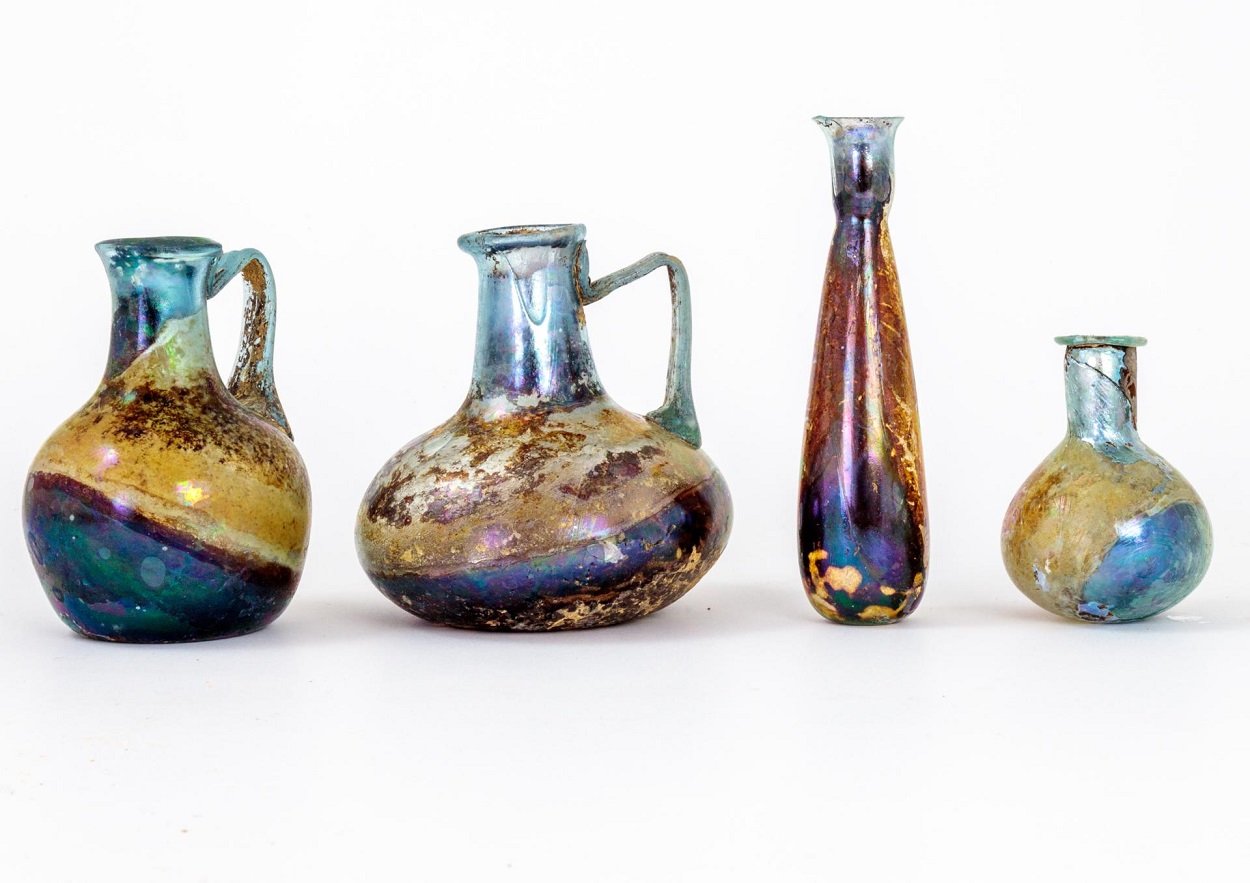An exquisite collection of glassware dating from the Roman period has been uncovered by INRAP archaeologists in the French city of Nîmes.
Nîmes, known in antiquity as Nemausus, emerged as a Roman colony (Colonia Nemausus) during the 1st century BC.
Internally, the city was structured along the cardo and decumanus, intersecting at the forum. Among the notable structures is the Maison Carrée, a temple dating back to the late 1st century BC – one of the finest surviving examples of Roman temple architecture.
Recent excavations on the Rte de Beaucaire have revealed cremation pyres and secondary burials from the 2nd century BC to the 2nd century AD. There are several pyres, some built out of limestone rubble or terracotta tile stacks, others simply dug into the ground.
The street follows the original east to west axis route of the Via Domitia, a major Roman road that linked Italy and Hispania through Gallia Narbonensis, across what is now Southern France.
The burials are located in funerary enclosures delimited by walls along the route of the Via Domitia and a second adjacent road running northeast to southwest. A total of 15 burials have been identified, a majority of which are cremation burials with several inhumation burials.
Buried with the deceased are numerous high status grave goods, including strigils (a tool for the cleansing of the body before bathing), ornate glass vases, ceramics, a glass paste cup, lamps, and fragments of funerary monuments and amphorae.
The glass vases are relatively intact, which were deposited during feasting rituals known as the refrigerium, a commemorative meal held on the day of burial. The refrigerium was conducted by female priestesses and centred on the consumption of wine in glass vessels.
Header Image Credit : C. Coeuret
Sources : INRAP





